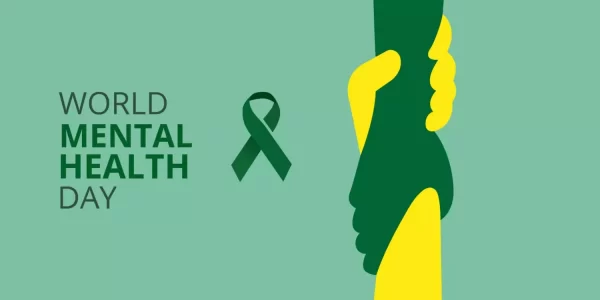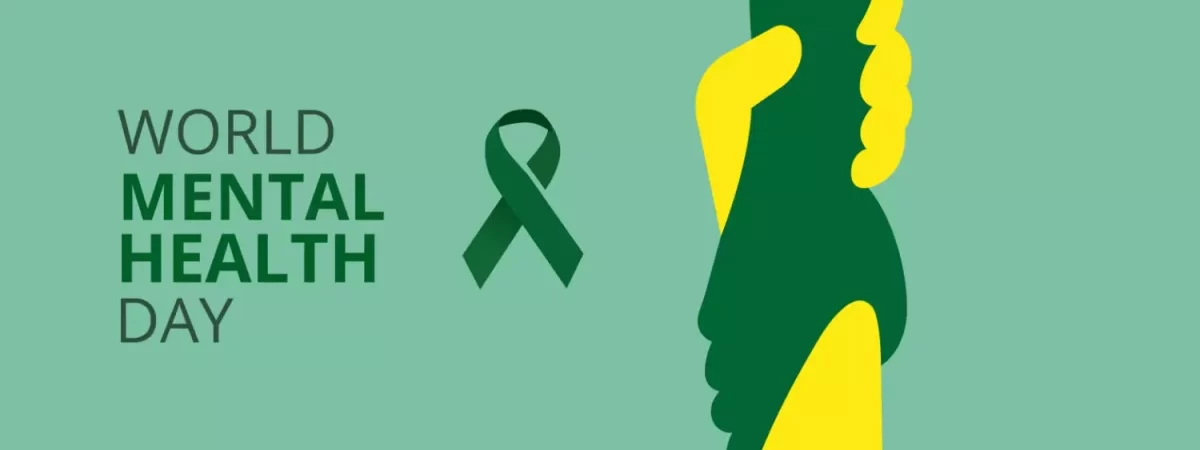How does the world turnaround mental health for good? What is the core of mental health to be sought, towards a better approach from the generally expressed it is ok to ask for help, or ok to not be ok, or to reduce stigma, fight discrimination or to increase psychiatrists per population, or some chatbot, some mindfulness app, it is important to talk, virtual reality, psychedelics, affordable, assessable care, vulnerability, if you’re having a hard time it’s no wonder you’re in good company, lived experiences, best practices, mental health first aid, mental health kit, tips or to embrace our sense of community and normalize mental health, mental health issues are part of being human, well-functioning promotion, prevention programmes, to reshape environments that influence mental health, to develop, strengthen community-based mental health services, mental health struggles can be the start of something new, experts to consider what measures would be helpful beyond clinical support, overall well-being, maximize personal potential, and so on.
Some of these are helpful to many, but the core of what a mental health problem is, is not with any of the above.
It is better to live in a world where it is acceptable to talk about mental health struggles without stigma or discrimination, but talking about mental health will not solve mental health.
Talking is therapeutic to the extent it can help, at times. It is possible to talk about the mind, not particularly understood, to someone else, to whom it is also not understood.
There is limit to talking, as a therapy or as a tool to encourage others in private or in public. There are mental health struggles that shut the ability to want to talk.
Talking often comes after situations but what it means to understand what goes on in mind in that moment, to find some form of help, is to be found elsewhere.
The progress that mental health needs is not more talk. This is also different from using text messages like in a recent study, to detect patterns, Automated Detection of Cognitive Distortions in Text Exchanges Between Clinicians and People With Serious Mental Illness which may work for some, but not cover across.
It is also different from customizing mindfulness or music for clinical depression, when the mechanism of what goes on in the mind, isn’t involved.
What is constant in all mental health experiences?
Why would someone without an economic problem have anxiety, and someone with an economic problem have anxiety? Why does word hurt to the point that someone who can get access to help contemplate suicide? What makes disappointment saddening, even for someone who has alternatives?
What constants in the brain make determinations for mental health or problem per moment, across situations? Whatever is constant in mental health, how do they relay for experience expressing decisions?
This is what the October 10, mental health day should have been about this 2022, beyond mental health as a trendy speak or mental health as a brand add, obtainable in some quarters.
There are people who cannot cope with their situations and depend constantly on drugs. For some, even knowing the risk is not enough to give it up or easily ask for help when they are in a bad situation everyday. There are those who cannot explain what goes on in their mind, even remotely, but continue to have promptings that lead them to problems.
How does the mind work what mental health or problem is? If this is displayed how can this architecture boost understanding that this is the mind or this is where this constant must not go, and this is why this property should be avoided.
There are serious mental illnesses with similar constants, though degree, relay and properties are different. There are also similar constants for kids, teens, adults, older, those with diseases and so on, regarding the mind.
Mental health is the brain, where the mind is made. There is no known mental health problem that is not an outcome of the brain. Anything that is said to affect mental health is an expression of mind. It does not do so, for everyone all the time. What should cause fear does not, for everyone all the time. Tickling, which is more common from others to an individual does not happen at every try, neither does tickling self fail all the time. There are constants of mind that make determination, each time.
The mind is thought [the quantity] and memory [its properties].
It is thought and memory, as constants of the mind, that determine what mental health, problem or illness becomes for anyone at any moment.
How should this be understood, displayed and approached, is how mental health would turnaround for the better.
It is the effect of thought and its properties per moment that shapes whatever comes into the mind, for what to experience, resulting in mental health or not, regardless of economic, political, or social situation.
Though there are many ways to try, but if the core is absent, chances for general progress would be slight.




